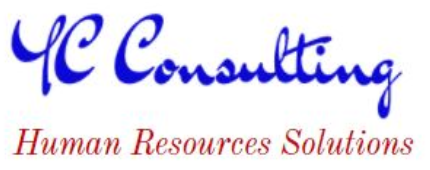In an era where South African companies are building inclusivity and diverseness into their working environment, disability in the workplace is taking the central stage. In September 2011, Ex-President Jacob Zuma announced the development of a Disability Act aimed at ensuring compliance with the UN Convention on the Rights of Persons with Disabilities. The convention addresses key areas like accessibility, equality, political participation, and non-discrimination.
In support of this, the South African government created a National Disability Policy including implementation guidelines. President Zuma emphasized the importance of integrating persons with disabilities into the mainstream economy, under the guidelines of the Employment Equity Act and Black Economic Empowerment Act.
What is Disability in the Workplace?
Disability in the workplace emphasizes how a disability affects an individual’s ability to function within their work environment, instead of focusing on the specific diagnosis or type of impairment.
Under the Employment Equity Act, a person with disabilities qualifies for protection if:
1. They have a physical or mental impairment
It includes various conditions, visible (like mobility impairments or sensory disabilities) and invisible (such as mental health conditions or chronic illnesses).
2. The impairment is long-term or recurring
For a disabled employee to qualify as “long-term,” the condition must last for at least a year or have a high likelihood of recurrence. For example, epilepsy is considered long-term even though symptoms are inconsistent.
3. The impairment substantially limits employment opportunities
It means the impairment affects an employee’s ability to find, retain, or progress in a job.
What Qualifies as a Disability in the Workplace?
For legal purposes, South Africa defines a disability as any long-term or recurring physical or mental impairment that limits a person’s ability to perform basic functions and pursue job opportunities, including the following:
Physical impairments
Under the banner of physical impairments, mobility disabilities, sensory disabilities (like hearing or vision impairments), and chronic health conditions, such as diabetes or cardiovascular issues are also recognized.
Mental impairments
Employees with conditions like depression, bipolar disorder, and anxiety disorders that can impact a person’s emotional and cognitive functioning also have the protection of the EEA and its disability policies.
Invisible disabilities
The EEA also recognizes conditions that aren’t immediately apparent, like chronic pain or autoimmune diseases, are also protected if they meet the criteria.
According to the EEA, any impairment must meaningfully hinder an individual’s prospects of employment entry, retention, or advancement. Employers encourage HR personnel to assess and adapt job requirements or workplace setups to ensure that qualified candidates with disabilities have equal access to opportunities.
Why Is Disability Inclusion Important In The Workplace?
Disability inclusion means building an environment where individuals with disabilities can fully engage and bring their unique talents and perspectives to the workplace. It’s more than just meeting legal requirements, it’s about cultivating a culture that genuinely embraces and values diversity in all its forms.
Recently, research conducted by Accenture found companies employing people with special needs exhibit a 28% increase in revenue, double the net income, and 30% higher profit margins compared to other businesses. This financial boost highlights the unique perspectives and skills that employees with disabilities contribute.

The report shows inclusive companies embracing disability have a 72% increase in employee productivity, demonstrating a diverse and supportive workplaces positive impact.
To individuals with disabilities, meaningful employment provides vital benefits, including financial independence, career growth, and personal fulfillment. Employment has a positive impact on their physical and mental well-being, supports skill development, and fosters social connections, contributing to a deeper sense of purpose and life satisfaction for everyone involved.
Economic inequality remains high in South Africa, making disability inclusion essential in the workplace. The reasons for the importance of disability inclusion in the workplace is highlighted below:
1. Diverse Perspective and Innovation
People with disabilities add value to their position and organization and should not be discriminated against. Their unique set of experiences and viewpoints can enrich decision-making and problem-solving processes. Including these perspectives allows organizations to tap into innovative ideas and solutions, fostering a more creative and adaptable workplace.
2. Boosting Employee Morale and Productivity
Research has proven that employees who are respected, acknowledged and included in decision making are motivated and more productive. Companies promoting disability inclusion, send a message that they value all team members, which boosts productivity and overall organizational success.
3. Expanding the Talent Pool
Inclusive hiring practices allows for greater talent base. People with disabilities have specific skills, qualifications, backgrounds, and insights that the business can benefit from.
4. Strengthening Customer Relations
Companies empowering themselves with inclusion and accessibility reach a broader customer base. By showing they understand and meet the needs of employees with special needs, companies strengthen their customer relationships, build loyalty and attract new customers.
5. Building a Positive Public Image
Organizations’ prioritizing inclusion and social responsibility draw more customers and talented employees. Emphasizing disability inclusion enhances the brand’s reputation and sets a business apart from its competitors.
6. Meeting Ethical and Legal Standards
Under South African law, creating a disability inclusive workplace is more than a moral decision, it’s a legal one.
By creating fair and accessible work environments, organizations fulfill their legal obligations and uphold ethical standards.
What Is Disability Discrimination In The Workplace?
Section 6 of the Employment Equity Act (EEA) states that no one can unfairly discriminate against an employee because of their disability or any other reason, either directly or indirectly, in any employment policy or practice. The EEA’s goal is to ensure equality in the workplace and fair representation of disadvantaged groups across all job categories and levels.
It aims to create a diverse workforce that reflects the broader population, while promoting economic development and efficiency. To achieve this, the EEA requires employers to eliminate unfair discrimination and ensure equal opportunities and fair employment practices for all employees.
The elimination of unfair discrimination and the promotion of employment equity go hand in hand. The Employment Equity Act (EEA) aims to address past disadvantages, including those individuals with disabilities face in the workplace, by implementing affirmative action measures. The EEA requires employers to adopt policies promoting equal opportunities and completely eliminating any form of unfair discrimination in their employment practices.
Creating DEI Policies in the Workplace
HR personnel involved with creating effective DEI (Diversity, Equity, and Inclusion) policies, aimed at employees with special needs or disabilities, are setting the organization up for success.
A well-developed DEI policy should include guidelines for recruitment, hiring, and professional development practices that support underrepresented groups, including people with disabilities, various ethnicities, genders, and other identities.
The DEI policy following on the footsteps of the EEA ensures that the business offers employees equal opportunities, are treated fairly, and feel valued and respected, creating a culture where everyone can contribute fully and thrive.
By focusing on accessibility, fairness, and awareness, organizations tap into a broader talent pool while reinforcing their commitment to diversity and equality. Developing these policies goes beyond simply meeting legal requirements; it’s about building a culture that values an individual’s unique contributions.
By partnering with HR consultants such as YC Consulting, companies effectively shape recruitment strategies supporting and empowering employees with disabilities.
We look further into how HR consultants can create DEI policies for recruiting potential employees with disabilities and special needs:
1. Define Clear Goals and Metrics for Inclusion
HR consultants should begin their DEI policies by setting specific goals for disability inclusion in recruitment. Establish metrics to track hiring, retention, and progression rates for individuals with disabilities. Ensure these goals align with broader organizational values and diversity targets.
2. Develop Accessible Job Descriptions and Postings
Ensure job listings use clear, direct language and avoid jargon that may deter applicants with disabilities. Provide listings in formats accessible to screen readers, and consider posting on disability-focused job boards and networks to reach a diverse audience.
3. Implement Inclusive Interview and Assessment Processes
HR personnel can train interviewers on conducting fair interviews for candidates with disabilities. They should use structured interviews to reduce bias and provide accessible formats for assessment, such as remote interview options or alternative assessment tools for those with sensory disabilities.
4. Provide Transparent Accommodations
Clearly communicate that accommodations are available throughout the recruitment process. Offer multiple ways for prospective candidates to request accommodations and ensure they have access to the tools and support they require for interviews or assessments.
5. Conduct Disability Awareness Training for Hiring Teams
Equip HR teams and recruitment managers with training on disability awareness and inclusive practices. Educate teams on understanding different disabilities, adjusting communication styles, and respecting individual differences.
6. Build Partnerships with Disability Organizations
Collaborate with advocacy groups and disability-focused organizations to attract experienced candidates with disabilities. These groups can help promote job opportunities and support the company in recruiting efforts suitable for individuals with disabilities.
7. Foster an Inclusive Onboarding Process
HR consultants can ensure the onboarding process is accessible and accommodating. Provide information in accessible formats and ensure new employees with disabilities have the resources they need, such as assistive technologies or ergonomic equipment.
How Businesses Deal with Disability in the Workplace?
Businesses can support employees with disabilities by raising an inclusive and accessible work environment through specific policies, accommodations, and awareness campaigns.
A company should implement policies fully supporting employees with disabilities, making clear commitments to inclusivity and zero tolerance for discrimination. It’s essential to create an environment where employees feel comfortable disclosing their disabilities and requesting accommodations without fear of bias or prejudice.
Employees should regularly be reminded prejudices towards any person with disability is in violation of our EEA and they may face fines or penalties or ultimately, dismissal.
Accommodations might include physical or ergonomic modifications, like accessible workstations or ramps, as well as digital solutions like screen readers or captioning tools. Flexible working options, like remote work or adjusted hours, also promote increased productivity in employees with disabilities.
By partnering with YC Consulting or disability-focused organizations, businesses can gain insights into best practices and tailor their accommodations to diverse needs.
How to Promote Disability Inclusion in the Workplace
HR personnel promoting disability inclusion in the workplace requires a commitment to creating a culture that respects and values diverse abilities. To begin, organizations can highlight the importance of inclusion in their mission and values, integrating these principles into all aspects of company culture.
Management should clearly convey their regulations regarding the importance of disability inclusion, setting the tone for a supportive environment.
HR can offer disability awareness training and inclusion programs for all employees to build understanding and acceptance. These programs might include workshops on disability etiquette, common accommodations, and the importance of inclusive practices. Employee Resource Groups (ERGs) for individuals with disabilities and their allies can provide a supportive community and raise awareness about disability in the workplace.
Outreach programs and partnerships with local disability organizations, like South Africa’s National Council of and for Persons with Disabilities (NCPD), further promote inclusion, providing avenues for recruitment and engagement with the community. Recognizing and celebrating events like International Day of Persons with Disabilities also raises awareness and demonstrates the organization’s commitment to inclusivity.
To further promote disability awareness in the organization, HR personnel can conduct regular audits to assess accessibility in physical spaces, digital platforms, and company practices, ensuring a continuously inclusive environment.
Conclusion
Disability inclusion in the workplace is essential to building a work environment that respects every employees’ strengths and values their perspectives. Inclusive recruitment and support practices not only improve organizational productivity and innovation but also promote social equity and fairness. By eliminating prejudices and discrimination towards employees with disabilities or special needs, the organization improves accessibility, and support employees with disabilities, setting a high standard of corporate responsibility.
YC Consulting, a black female owned HR Consulting and Recruitment Agency, assists businesses meet these goals by ensuring compliance with South Africa’s Employment Equity Act (EEA) and guiding organizations in creating and implementing effective DEI policies.
Through their long term experience, companies businesses can establish fair, inclusive policies that advance disability representation, foster workplace diversity, and align with ethical and legal standards. The result is a more inclusive, dynamic, and forward-thinking workforce that reflects the broader society’s diversity.
References
https://www.scielo.org.za/scielo.php?script=sci_arttext&pid=S1727-37812012000100010
http://disabilityinfosa.co.za/
https://www.legalinfo.co.za/legalinfo/includes/codes/Disability.htm






